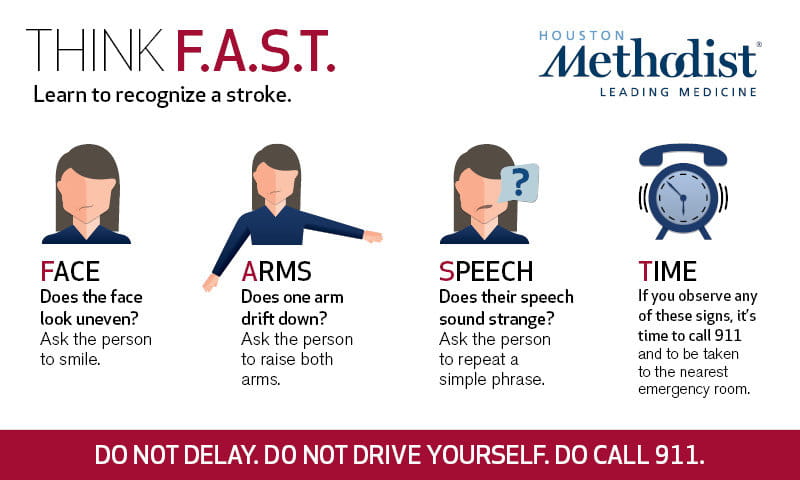Stroke Risk in Young Adults Is Higher Than You Might Expect
Oct. 15, 2019Stroke is often considered a condition that almost exclusively strikes older people. And while people over 50 still comprise the vast majority of stroke patients, research findings suggest a disturbing trend indicating an increase in stroke in younger age groups.
“When people think of stroke, they think of grandpa, who smokes and has hypertension,” says Dr. Ruby Parveen, neurologist at Houston Methodist. “And while he certainly carries a higher risk of stroke, it doesn’t mean that if you’re young and healthy you can’t be at risk of stroke, too.”
What are the risk factors for stroke?
Research indicates that 10% to 15% of all ischemic strokes (the most common type of stroke) now occur in adults younger than age 50. The apparent rise in stroke among younger adults is attributed to many of the same lifestyle risk factors:
- High blood pressure
- Obesity
- High cholesterol levels
- Diabetes
- Smoking
Dr. Parveen explains that younger patients may have additional stroke risk factors, such as congenital or structural heart defects or injuries to the arteries in the neck possibly caused by even minor trauma. Young people with blood coagulation defects or conditions, such as sickle cell disease, are more susceptible to stroke as well, and the risk further increases if they have developmental anomalies of the blood vessels of the brain.
Another factor that may increase the risk of stroke is illicit drug use, including abuse of substances like cocaine and methamphetamines.
Steps you can take to avoid stroke
While the symptoms of stroke are the same for both older and younger adults, people may not readily recognize the symptoms in younger patients, which may lead to a delay in diagnosis that can cause permanent damage.
(5 Signs of Stroke & Why Acting Quickly Is Crucial)
Dr. Parveen says young adults should be aware of their stroke risk factors and the importance of:
- Maintaining a healthy weight
- Avoiding or quitting smoking
- Scheduling regular blood pressure, cholesterol and diabetes screenings



